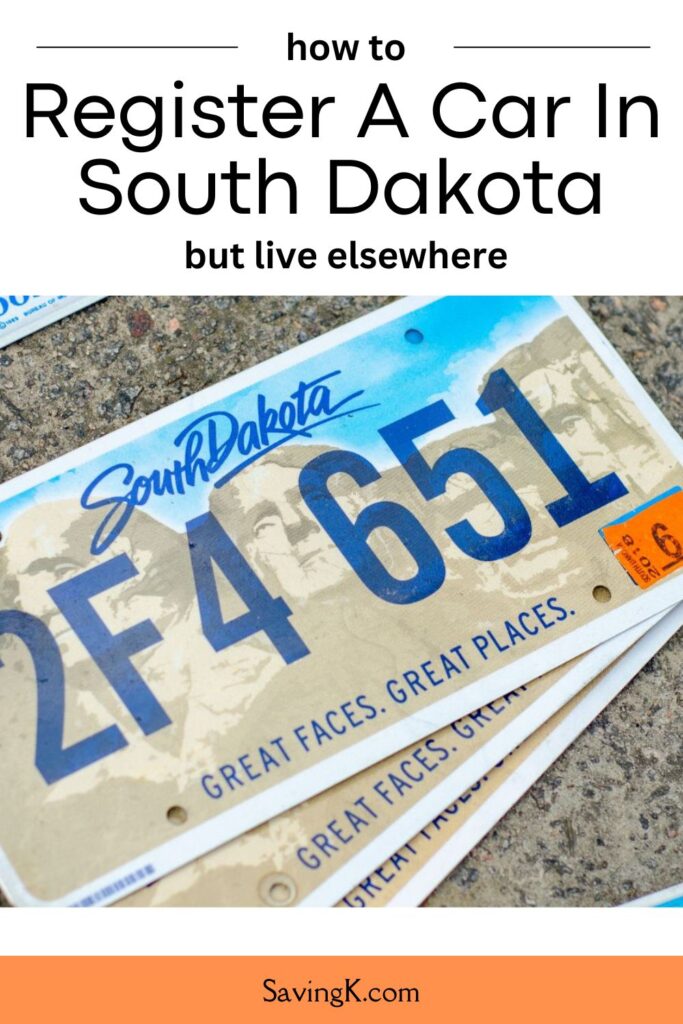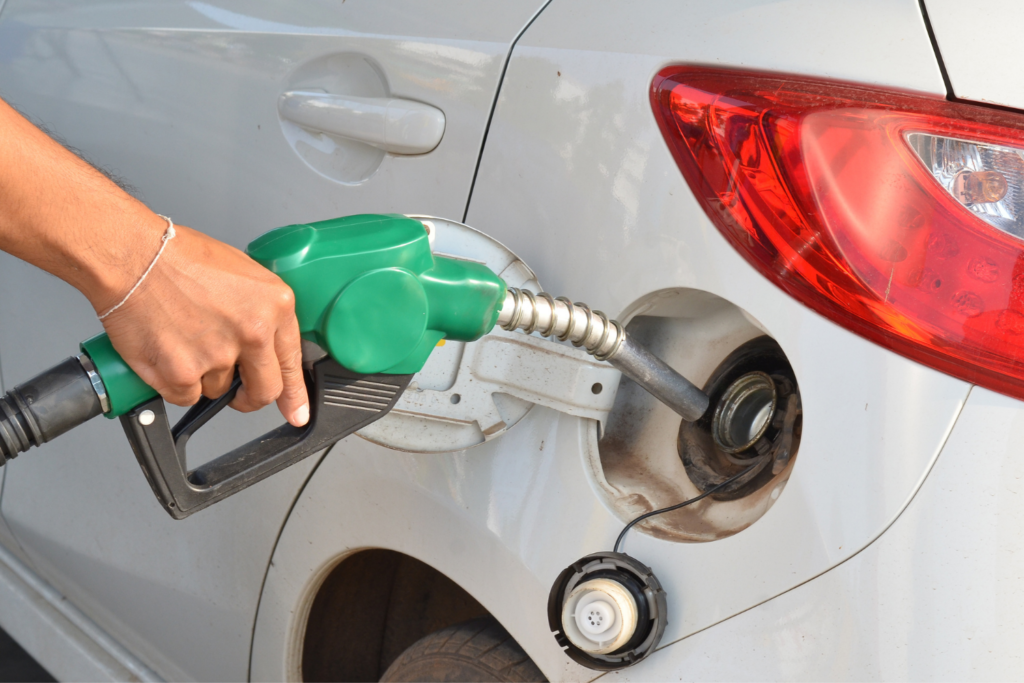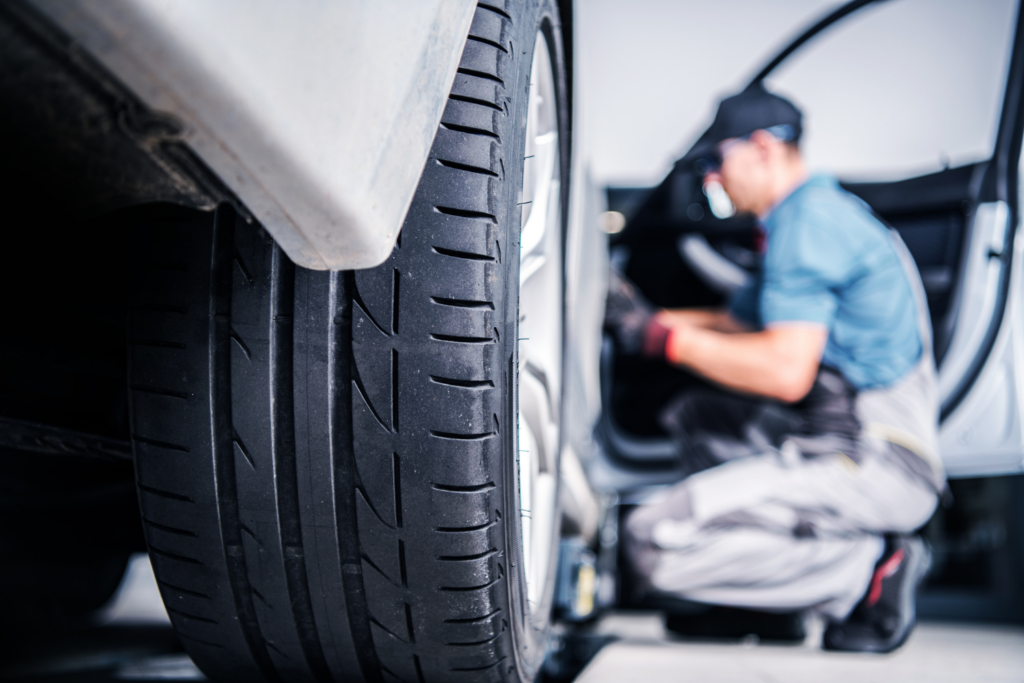
Registering a vehicle can be a complicated process, especially when you’re trying to do it from a state in which you’re not a resident. However, South Dakota has become a popular choice for out-of-state individuals and businesses looking to register their vehicles due to its favorable regulations and straightforward procedures. In this article, we will provide an in-depth guide on how to register a car in South Dakota from anywhere in the USA, even if you’re not a resident.
Contents
Benefits of Registering A Car in South Dakota
Many individuals and businesses from across the United States choose to register a car in South Dakota because registering a vehicle in South Dakota offers several advantages.
These advantages include:
- Low Vehicle Registration Fees: South Dakota typically has lower vehicle registration fees compared to many other states. This can result in cost savings for vehicle owners, especially for individuals or businesses with multiple vehicles.
- Simple and Streamlined Registration Process: South Dakota has a relatively straightforward and efficient vehicle registration process. The state offers the convenience of mail-in registration, allowing individuals and businesses to register their vehicles without needing to physically visit the state.
- Flexible Residency Requirements: South Dakota has minimal residency requirements for vehicle registration, making it accessible to non-residents. You don’t need to be a full-time resident of South Dakota to register your vehicle there, which can be advantageous for RV owners and travelers.
- Tax Savings: The absence of a state income tax, coupled with favorable tax laws, can lead to significant tax savings for high-income individuals and businesses that choose to register their vehicles in South Dakota. South Dakota is one of the few states in the USA that does not levy a state income tax on individuals or corporations. This means that residents and businesses in South Dakota do not have to pay state income taxes on their earnings, including income derived from vehicle-related activities.
- Mail-In Registration: South Dakota’s mail-in registration option makes it convenient for vehicle owners from anywhere in the USA to register their vehicles without the need for an in-person visit.
- No Vehicle Inspections: Unlike states like California that require regular vehicle inspections to ensure roadworthiness and safety, South Dakota does not have a mandatory vehicle inspection program. This means that vehicle owners in South Dakota are not subjected to periodic inspections, saving them time and potentially avoiding repair costs associated with meeting strict inspection standards.
- No Emissions Checks: South Dakota does not require emissions checks or smog inspections for most vehicles. In contrast, California and several other states have rigorous emissions testing programs aimed at reducing air pollution. Vehicle owners in South Dakota are not burdened with the cost and effort associated with ensuring their vehicles meet stringent emissions standards.
- Convenience: Vehicle owners in South Dakota benefit from the convenience of not having to schedule and attend inspections or emissions checks. This can be particularly advantageous for those with busy schedules or multiple vehicles to manage.
- Vehicle Modification Flexibility: South Dakota’s lack of emissions checks allows vehicle owners greater flexibility in making modifications to their vehicles without the concern of failing emissions tests, which can be an issue in states with strict emissions regulations. Avoiding the expenses associated with emissions checks and any necessary repairs to pass such tests can result in cost savings for vehicle owners. In states with emissions testing, failure to meet emissions standards can lead to costly repairs or modifications.
- Asset Protection: South Dakota offers strong legal protections for assets held within the state. Some individuals and businesses use South Dakota vehicle registration as part of their asset protection and estate planning strategies.
- Privacy Considerations: Registering a vehicle in South Dakota can provide an added layer of privacy for vehicle owners. The state does not require vehicle owners’ social security numbers to be displayed on vehicle registration documents, enhancing privacy.
- Business-Friendly Environment: South Dakota is known for its business-friendly environment, which includes favorable tax policies and regulations. Many businesses choose to register their vehicles in South Dakota to take advantage of these benefits.
- Trust-Friendly Laws: South Dakota has some of the most favorable trust laws in the country, making it an attractive destination for those looking to establish trusts and manage their assets efficiently.
How To Register A Car In South Dakota
Now, let’s look at the step-by-step process of registering your vehicle in South Dakota from anywhere in the USA:
Step 1: Gather Required Documents
Before you start the registration process, make sure you have the following documents ready:
- Vehicle Title: You must have the vehicle’s title, which should be in your name or your business’s name. South Dakota even accepts salvage titles!
- Bill of Sale: If you recently purchased the vehicle, you’ll need a bill of sale.
- Proof of Insurance: Ensure you have valid insurance coverage for the vehicle.
- Application for Motor Vehicle Title & Registration (Form MV-608): This form can be obtained from the South Dakota Department of Revenue’s website.
- Vehicle Inspection Report (if applicable): Some vehicles may require an inspection before registration. Check with the South Dakota Department of Revenue to determine if your vehicle needs an inspection.
Step 2: Establish a Presence in South Dakota
To register a vehicle in South Dakota, you’ll need to establish a presence in the state, even if you’re not a resident. Here are two common ways to do this:
- Registered Agent: You can designate a registered agent located in South Dakota who will act as your representative for official purposes. Many businesses choose this option.
- Mail Forwarding Service: You can use a mail forwarding service in South Dakota to receive official documents and mail related to your vehicle registration.
Step 3: Complete the Application
Fill out the Application for Motor Vehicle Title & Registration accurately. Be sure to include all required information, such as your South Dakota address (using the registered agent or mail forwarding service address).
Step 4: Submit the Application
Mail the completed application, along with the required documents, to the South Dakota Department of Revenue at the following address:
South Dakota Department of Revenue Motor Vehicle Division
445 E. Capitol Ave.
Pierre, SD 57501
Step 5: Pay the Fees
South Dakota has various fees associated with vehicle registration, including title fees, registration fees, and taxes. You can find the fees on the South Dakota Department of Revenue’s website to determine the exact amount you owe.
Step 6: Await Processing
Once you’ve submitted your application and fees, you’ll need to wait for the South Dakota Department of Revenue to process your registration. This can take several weeks, so plan accordingly.
Step 7: Receive Your Plates and Documents
Once your application is approved, you will receive your South Dakota license plates and registration documents by mail. These will be sent to the address you provided in your application.
Step 8: Install Your Plates
Upon receiving your plates, install them on your vehicle as required by South Dakota law.
Conclusion
Registering your vehicle in South Dakota from anywhere in the USA, even if you’re not a resident, is a relatively straightforward process thanks to the state’s favorable regulations and mail-in registration option. By following the steps outlined in this article and ensuring you have all the necessary documents and fees, you can successfully register your vehicle in South Dakota and take advantage of the state’s tax benefits and business-friendly environment. Remember to consult with the South Dakota Department of Revenue or seek legal advice if you have any specific questions or concerns regarding your vehicle registration.





